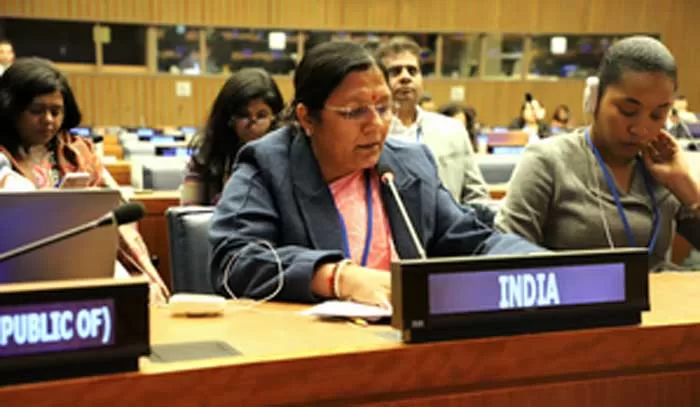New York, February 12 – India is actively promoting digital and financial literacy among women entrepreneurs in rural areas, said Savitri Thakur, Union Minister of State for the Ministry of Women and Child Development, at the ongoing 63rd session of the United Nations’ Commission for Social Development (CSoCD). The session, which runs from February 10 to 14 in New York, aims to foster discussions and collaborations on key social development challenges.
Highlighting India’s commitment to inclusive growth, Thakur stated, “India has embraced ‘women-led development,’ ensuring women are key players in shaping the development trajectory.” She emphasized that large-scale programs have been launched to bridge the gender digital divide, empowering millions of women entrepreneurs across the country.
One of the government’s flagship initiatives, the JAM Trinity (Jan Dhan, Aadhaar, Mobile), has played a crucial role in achieving financial inclusion, particularly for disadvantaged communities, including women, persons with disabilities, and the elderly. The initiative has facilitated direct benefit transfers, access to financial services, and improved economic participation for women in rural India.
Increasing women’s workforce participation remains a key priority, with the government implementing a robust social protection model. This includes 26 weeks of paid maternity leave, maternity benefits for 37.5 million mothers, and a network of one-stop centers along with an integrated national women’s helpline. Furthermore, India provides early childhood care, nutrition, and education, benefiting over 100 million children, mothers, and adolescent girls.
“India is fully committed to accelerating global progress and supporting the Commission’s efforts toward a just world for all,” Thakur affirmed.
The session has witnessed participation from 49 countries, including ministers from 16 nations such as France, Turkiye, Saudi Arabia, and Sweden. India, an active participant in the Commission since the 1995 Copenhagen Summit on Social Development, continues to make strides in poverty alleviation, malnutrition reduction, and universal healthcare while pioneering digital public infrastructure to support sustainable development.
Disclaimer: This article is based on official statements and discussions held at the UN’s Commission for Social Development session. The information provided reflects government perspectives and ongoing initiatives but does not constitute an independent assessment of the impact or outcomes of these programs.












